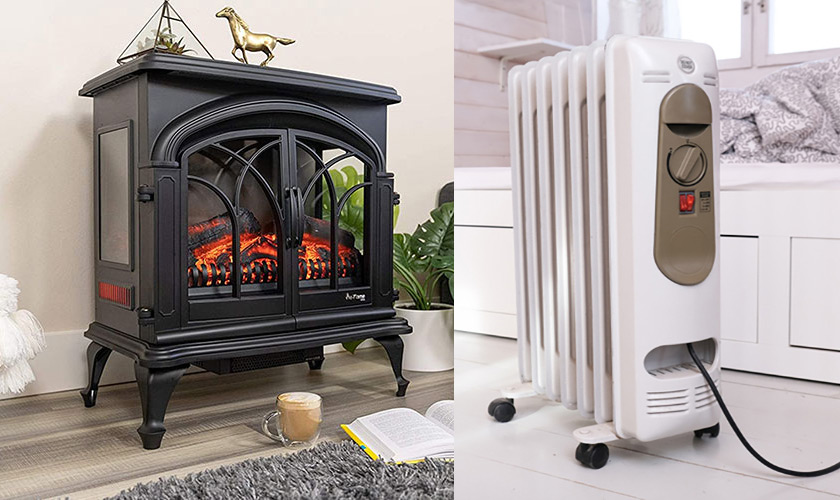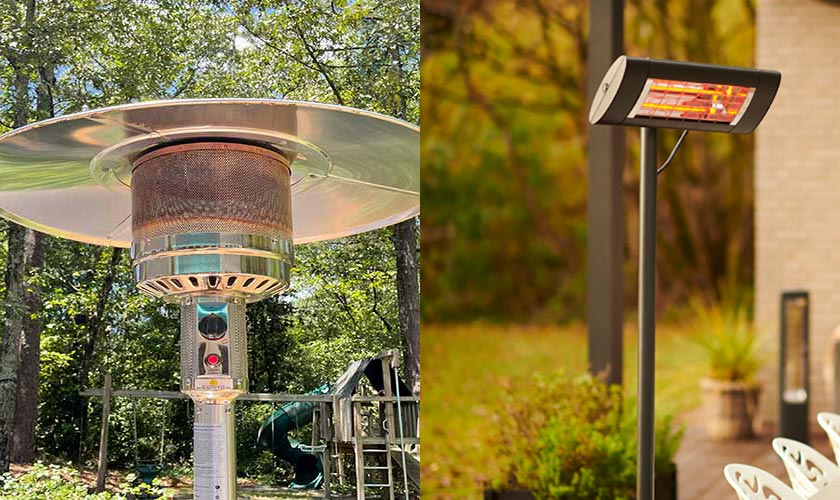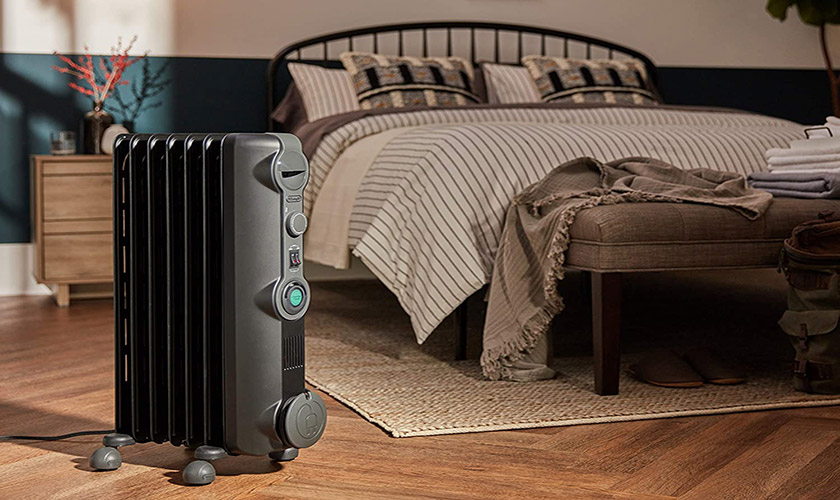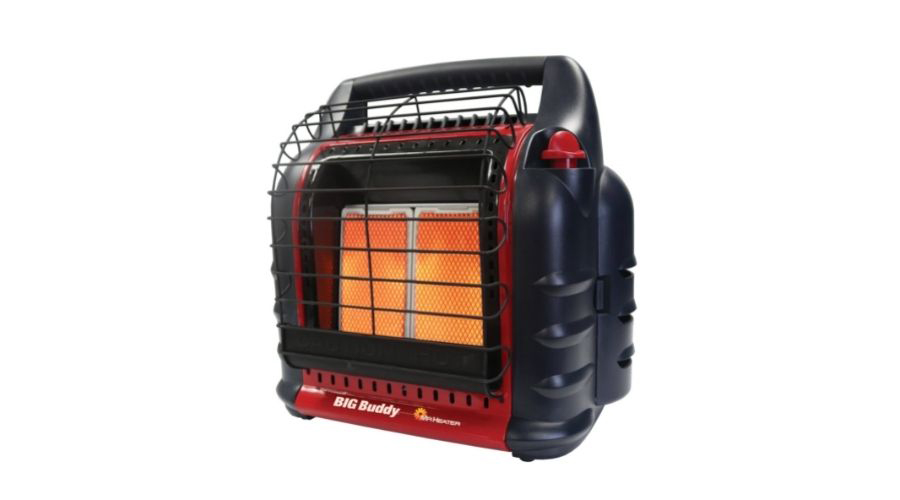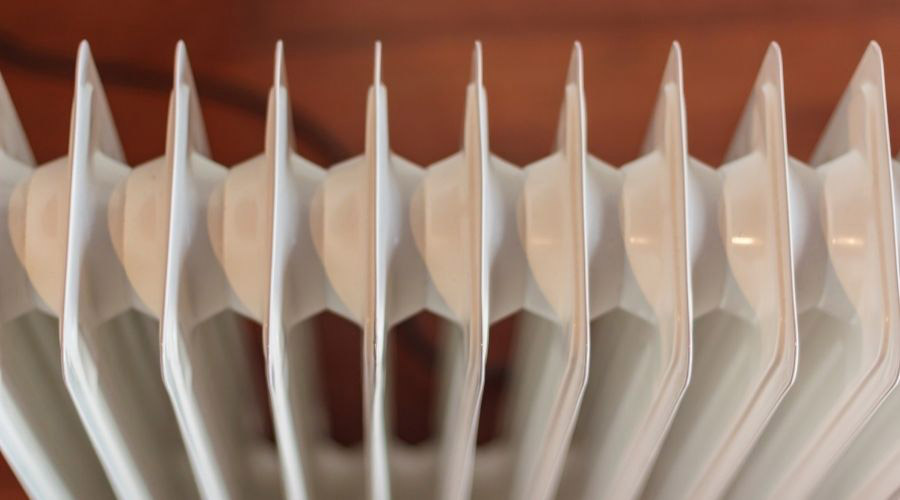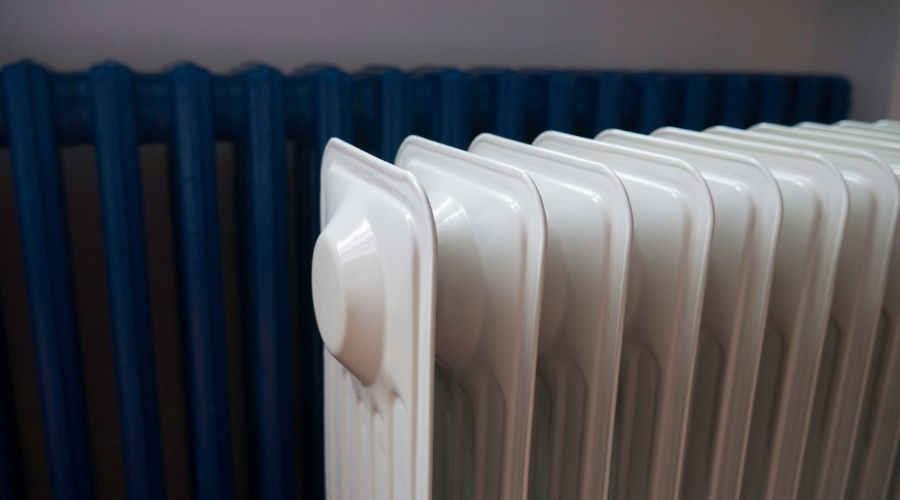
Many homeowners opt for the use of portable gas and electric heaters. Whether you need to heat your RV, a room not covered by your heating system, or you’re camping, portable heaters can be an excellent default solution for all your troubles.
However, like any other heater, portable heaters still need fuel, and high costs are a completely understandable worry for many homeowners. Many people pose the question: Do portable heaters use a lot of electricity?
Electric portable heaters use a lot of electricity. Despite their relatively low price, their energy cost isn’t cost-effective unless you have an autonomous way to save energy. However, gas heaters use very little electricity and are usually cheaper to run.
It needs to be taken into account that this has many intricacies. There’s a significant, gaping difference between gas and portable electric heaters and different pros and cons for different kinds of heaters.
Today, we’ll learn exactly how portable heaters work, how much electricity they use, whether they are energy-efficient, and how to improve that efficiency. We’ll also be taking a look at their pros and cons. Let’s get started.
How Do Portable Heaters Work?
There’s a vast noticeable difference between the way portable electric heaters work and their gas counterparts.
Despite gas heaters being more suited to the outdoors and electric heaters being a favorite when heating the inside living area, these aren’t the only reason for their popularity.
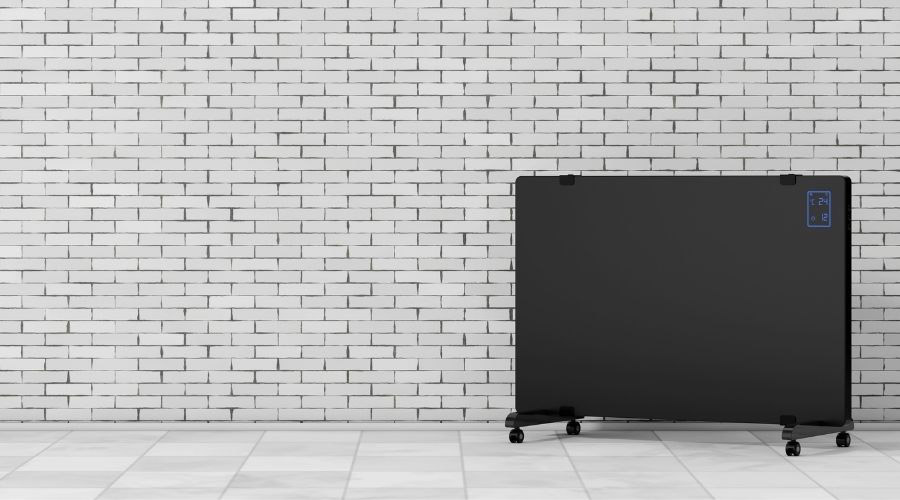
Electric Heaters
Firstly, when it comes to electric heaters – users love their simplicity. You only need to plug your heater in to get it started. Following that, your heater will heat up quickly, and it’ll cool off just as fast as soon as you turn it off.
electric heaters aren’t expensive; gas heaters are, in fact, about eight or nine times as expensive as electric heaters. This is something that users naturally look for in any device.
When it comes to electric heaters, there are many different types, but here are four of the most popular ones.
1. Fan Heaters
The lightest version of the portable electric heater is the fan heater. These small heaters are also the most portable ones (since they’re so airy).
They work on a fanning system, meaning they use the fan(s) to spread the built-up heat. They are also fast-heating; if you’re looking to target a small, specific area, they might do the same job you need. The only drawback these heaters have is the constant fan noise.
2. Convection Heaters
Then, there are convectors – a common name for convection heaters. They work by warming up the air around them, forming a hot and cold air cycle, thus regulating the temperature.
They continue to do that until the room is heated evenly. Convection heaters are slower than other radiators, but the perfectly balanced room temperature may be worth the result.
3. Halogen Heaters
Halogen heaters warm up quickly, and they’re the cheapest ones to run out of all the electric heaters, making them a definite favorite.
4. Oil-filled Heaters
The last entry on this list belongs to oil-filled radiators. Massively popular and used for over half a century, these heaters are the most efficient.
Oil is a great preserver of heat, so not a cent of your monthly utility bill goes to waste. The price of the device itself is also meager.
You can also buy fixed electric heaters, but you can easily attach a fan heater to your wall and achieve the same effect.
One advantage electric heaters have over gas heaters is their 100% efficiency rating. They turn all the energy they use into heat, so everything you spend on them is money well-spent.
There are even heaters with thermostat controls or automatic thermostat controls, and those are even more efficient. You can set them to turn off once the room has reached a specific temperature or set them to keep a certain temperature.
If your heater doesn’t have this option, you can buy a thermostat with a timer and connect it to your heater after plugging it in.
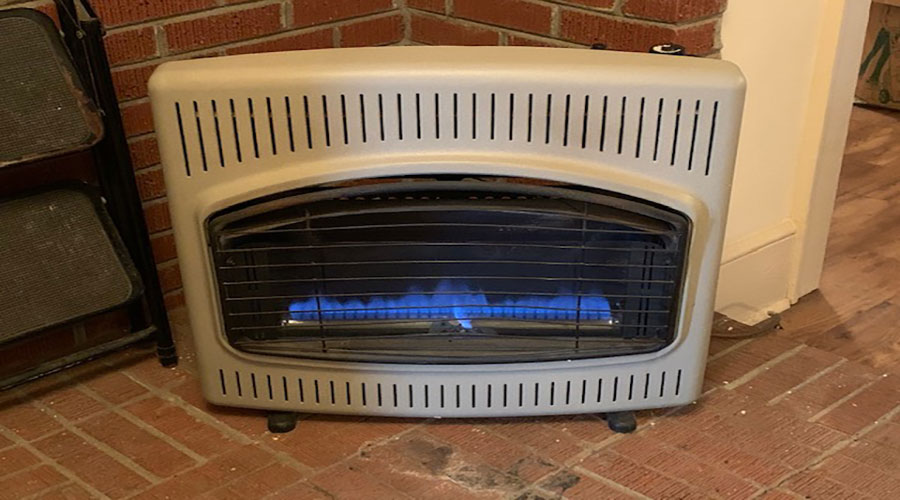
Portable Gas Heaters
Regarding portable gas heaters, they usually use the radiant heating method to provide you with warmth, meaning that they combine gas and air to create a flame, which offers warmth.
The heat spreads throughout the space where the heater location is. One should be careful when choosing between flued and non-flued gas heating systems.
Flued heating systems are suitable for the indoors since they have ventilation, but non-flued systems can be very harmful. Because fuel heaters don’t have a built-in ventilation system, they rely on home ventilation – i.e., you opening your windows.
You’re in danger if you do not establish proper ventilation since gas heaters also produce carbon monoxide. If space does not have adequate ventilation, it can lead to poisoning.
Many homeowners debate adamantly about the benefits of portable and fixed heaters. But portable heaters are a great solution if you need to heat up smaller, isolated areas that aren’t well connected to other areas of your home (shed, garage, attic, etc.).
These heaters use fans to spread the heat instead of using the vents and are usually cheaper when it comes to the monthly bill (after all, gas is more affordable than electricity).
Fixed heaters lack ventilation, though. The only noticeable difference is that fixed heaters are usually attached to the wall, while portable heaters are portable.
There are only two types of gas heaters: radiant heaters and gas stoves.
1. Radiant Gas Heater
Radiant heaters are great for heating a specific spot and are more portable than gas stoves.
2. Gas Stove Heaters
On the other hand, gas stoves are more pleasing to the eye but cause problems when moving around. Since they leak heat and fumes, gas heaters are less efficient than electric heaters.
The previous leak is completely inescapable when discussing gas heaters. Since electricity is renewable, and fossil fuels aren’t – gas heaters are less green than electric heaters.
How Much Electricity Do Portable Heaters Use?
Portable heaters usually need about 1500 watts to fully function, and since you shouldn’t use a space heater while you’re sleeping, if you want to keep one on for sixteen hours a day – it would cost about three dollars a day to keep a heater running all day.
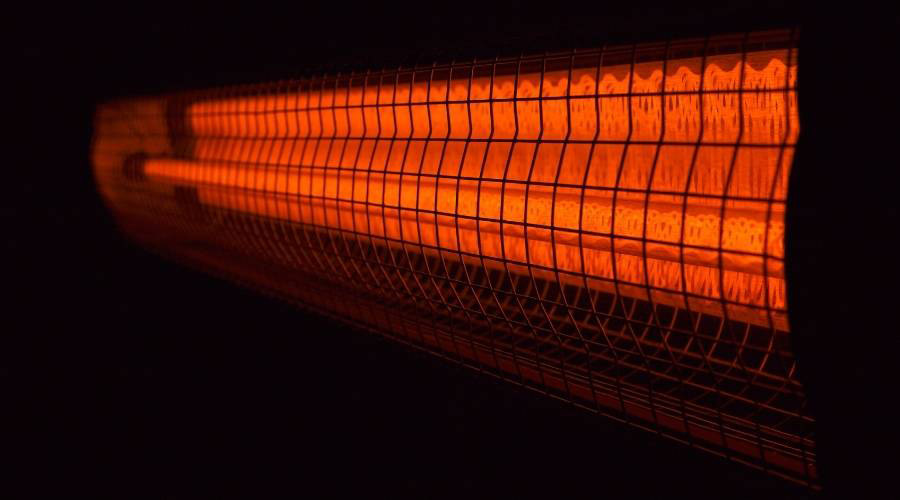
Electric Heater Power Usage
There’s a gaping difference between electric and gas heaters. Electric portable heaters run exclusively on electric power, meaning they’ll be using up much of it.
Your monthly bill isn’t going to be low. The upside is that you’ll be getting your money’s worth. The fact is – portable electric heaters use all the energy provided to them, meaning that you’re not throwing anything away.
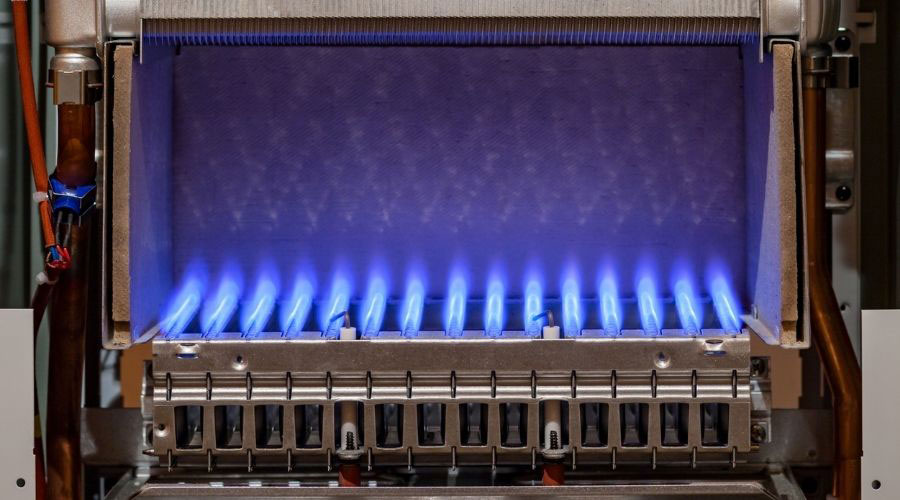
Gas Heater Power Usage
With portable gas heaters, you’re saving much more money on electricity than with portable electric heaters. They use gas to power, create heat, and only use small amounts of electricity (most often for regulating the device itself).
So, if you have a portable gas heater, you shouldn’t worry about your electricity bills; they’ll most likely stay low. They’ll be high, though, if you purchase a portable electric heater.
Are Portable Heaters Energy-Efficient?
Yes, some portable heaters are energy efficient, but not all are entirely energy efficient.
When it comes to portable gas heaters, it gets tricky. Gas isn’t as controllable and disciplined as electricity, so it’s more challenging to ensure that all heater’s gas will be used.
Also, in the heating product, gas produces fumes – this means that not all of the gas used to heat the heater will heat it; some of it will leave the heater without actually being used. For this reason, gas heaters aren’t as efficient as electric heaters.
Regarding gas heaters using electricity, they only use electricity to control the device.
What Are the Pros of Portable Heaters?
1. Portable Heaters Save Money
Space heaters can be great for saving money since they only heat the area where they’re placed. You have to put one in the room you’re currently residing in, which will only heat that room. If you use radiant gas heaters, you’ll even be able to heat only the area in front of the heater.
Portable heaters use considerably less power than fixed heaters when heating up at the same temperature, which will always help you save on energy. To help you save more, you should turn off your fixed heater in the room your portable heater is running in.
You’ll be staying just as warm for less power. Ensure to unplug your heater once it is not in use, and purchase a space heater appropriately sized for your home.
2. Simple to Use
These heaters are simple to use and have a great design. Electric heaters are best for the indoors; they are cheap, plug-in ready, and they only generate heat and use power when used. They’re super simple. Plug them in, set the temperature, and let them do their thing.
Good space heaters even have sensors that automatically turn the device off once they reach a specific temperature or after a pre-designated length of time has passed.
If a space heater stops working correctly or breaks, it’s usually easy to figure out what happened. Even if you can’t fix it, electric heaters are so cheap that it may be best to buy another.
Even though portable heaters can’t replace fixed heating systems, they’re still a good alternative if you need to save money and stay warm.
3. Portable Heaters are Environmentally Friendly
Being environmentally friendly applies primarily to gas heaters. Here are a few reasons why:
- You’ll be using less of the fuel to stay warm (less than you would with electricity for the same amount of heat).
- You’ll be lowering your carbon footprint.
- Electricity may be cleaner than fossil fuels, but it’s still not a completely renewable source yet.
- You’ll be using much less gas than electricity.
4. Quickly Heats an Area
A portable heat pump heats up much quicker than fixed heaters, incredibly portable gas heaters.
5. Made For Outdoor & Indoor Use
There are a lot of heaters suited for both outdoor and indoor use. You can’t use your fixed heating system to heat your patio, terrace, or gazebo.
You can, however, take out your portable propane heater to any of those places and keep yourself cozy and warm. Heaters with an open, controlled flame are especially popular in this regard. You can also use them on your camping trips and your RV.
6. Convenience in Size
Portable heaters are usually small in size, unlike bulky fixed heaters, meaning that you can fit them almost anywhere, and you won’t have a problem with them taking up too much space. They’re also often neatly designed, so they’ll fit in with your modern home.
7. They are Extremely Affordable
These heaters are much less complex and simpler to put together than their fixed counterparts. That’s why they’re so much cheaper. You won’t be breaking the bank on this one.
8. Provides a lot of Portability
We’ve decided to keep this one as the last, but it’s an essential feature of these heaters. You can move them around as you like. You can quickly heat any place where you need it the most.
They’re the ideal solution for your heating troubles if you’re living in temporary housing (dorm rooms, apartments, even camping trips if you have the means to power the heater).
What Are the Cons of Portable Heaters?
1. They Can Be Dangerous
According to the U.S. Consumer Product Safety Commission, more than 25,000 house fires are started by space heaters yearly.
Unfortunately, that is the ugly truth: having an open flame in your indoor area isn’t always a bright idea. Not only that, but portable electric heaters can cause fires, as well, since they’re heated up rods.
However, we must note that we could have avoided most of these accidents if only homeowners paid attention and practiced safe heater use. Fixed heaters are much safer because you don’t have to worry about this.
Since electricity draws a lot of power, your home is at risk of fire if your electrical system can’t handle the load. The only way to minimize the risk is never to use your heater with an extension cord or leave it when you leave the room. Also, it’s best to keep your heater away from flammable things like carpets, curtains, bookshelves, etc.
Many gas and portable electric heaters have sensors that automatically turn them off if they overheat or tip over.
2. Can Emit Carbon Monoxide Depending on the Heater
With portable gas heaters, there’s also the (admittedly unlikely) possibility of the heater giving off carbon monoxide, which is toxic to humans, animals, and plants.
3. Some Heaters Aren’t Safe for Children & Animals
Homes with children and animals are at particular risk because a child might turn on the heater by accident. That’s why you should keep these things in mind:
- Only use the heater when you’re in the room with it
- Don’t use non-vented gas heaters indoors
- Don’t use heaters with an extension cord (it could set on fire if it comes to an overload)
- Read the instructions manual
- Do not leave the heater on overnight.
Attention requirements – portable heaters need a lot of attention because they’re relatively unsafe. However, it is not that big of a deal – all you have to do is not use the heater if you’re not in the room.
Conclusion
Whenever you’re choosing between heaters, make sure to consult the internet or even talk to experts. There are both pros and cons to both fixed and portable heaters, and you must complete the right choice for your home.


